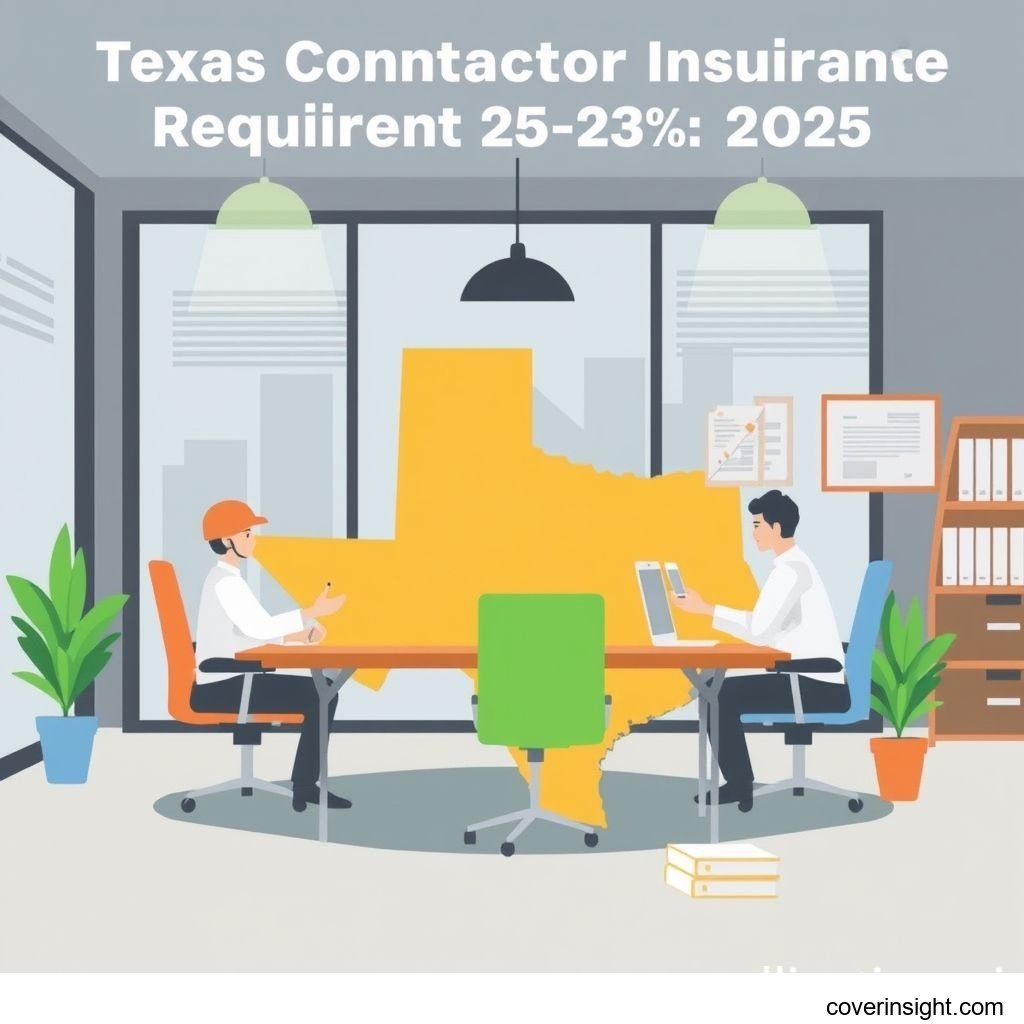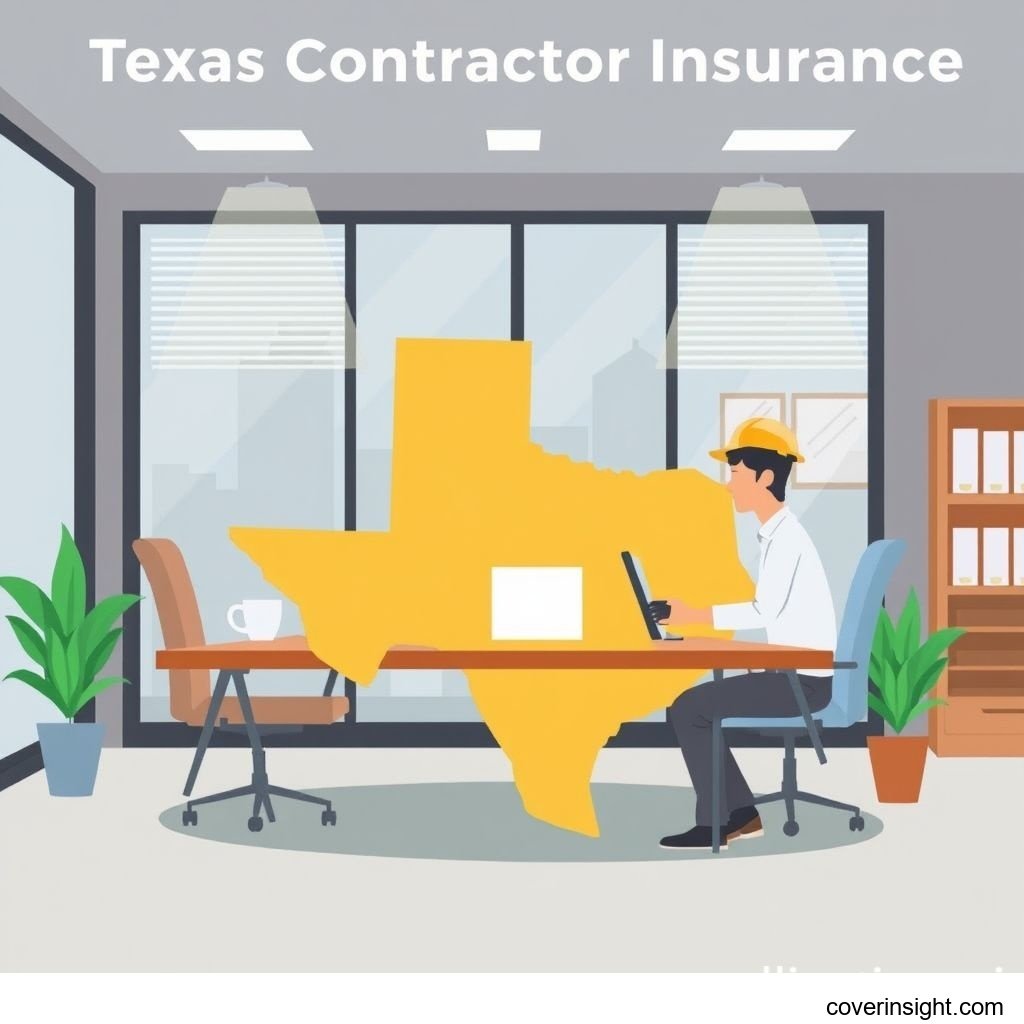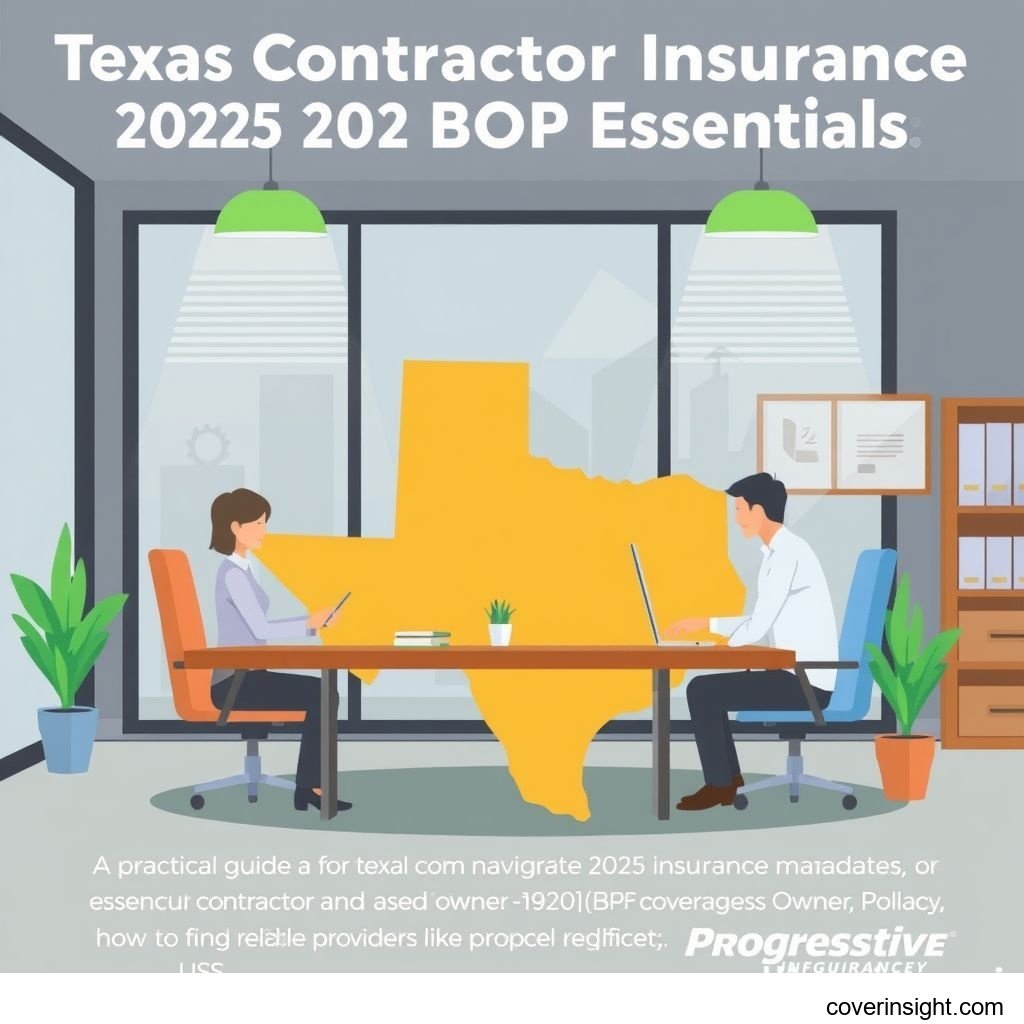Texas Contractor Insurance Requirements 2025: Guide
Introduction
As we look ahead to 2025, understanding contractor insurance requirements across the United States is more crucial than ever, and Texas is no exception. The landscape of construction and contracting is constantly evolving, bringing with it new risks and, consequently, updated insurance necessities. For any contractor, whether a seasoned veteran or just starting out, having the right Texas contractor insurance requirements 2025 in place isn't just about compliance; it's about safeguarding your business, your projects, and your peace of mind. Without adequate coverage, a single incident could derail years of hard work, putting your financial stability at risk. It’s like building a skyscraper without a solid foundation—it might stand for a bit, but it’s destined to crumble under pressure.
Coverage Details
Navigating the various types of insurance can feel like a maze, but breaking it down helps. For Texas contractor insurance requirements 2025, several core policies stand out as essential.
What’s Included
Typically, a comprehensive contractor insurance package in Texas will include:
-
General Liability Insurance: This is often the cornerstone of any contractor's policy. It protects your business from claims of bodily injury or property damage that occur during your operations. For instance, if a ladder falls and damages a client's fence or a visitor slips on a wet floor at your job site, general liability would kick in.
-
Workers' Compensation Insurance: While not always mandatory for all businesses in Texas (Texas is one of the few states where it's not universally required for private employers), if you have employees, it’s a critical consideration. If an employee gets injured on the job, this policy covers their medical expenses and lost wages, protecting your business from potentially devastating lawsuits. For many general contractors, sub-contractors they hire will need to show proof of their own Workers' Comp coverage.
-
Commercial Auto Insurance: If you use vehicles for business—hauling tools, transporting materials, or driving to job sites—this policy is non-negotiable. It covers damages and liabilities related to accidents involving your work vehicles.
-
Professional Liability (Errors & Omissions) Insurance: Especially relevant for contractors who offer design, consulting, or project management services, E&O covers claims arising from professional negligence, errors, or omissions in your work. Think of an architect whose faulty design leads to structural issues—E&O would provide a safety net.
Common Exclusions
While robust, no insurance policy covers everything. Common exclusions you might encounter include:
-
Intentional Acts: Damage or injury caused intentionally by you or your employees is almost never covered.
-
Contractual Liability: Unless specifically endorsed, liabilities you assume under a contract may not be covered by standard policies.
-
Employee Injuries (if no Workers' Comp): If you opt out of Workers' Comp in Texas and an employee gets injured, your general liability won't cover their injury, leaving you fully exposed.
-
Poor Workmanship (Damage to Your Own Work): General liability typically covers damage your work causes to other property, not the cost to redo your own faulty work. This is a common misunderstanding. For instance, if you install a roof incorrectly and it leaks, causing damage to the interior of the house, the interior damage might be covered by general liability, but the cost to replace the faulty roof itself would not be.
-
Punitive Damages: In many cases, policies will not cover punitive damages awarded in lawsuits.
Cost Analysis
Understanding the Texas contractor insurance requirements 2025 extends to grasping the financial aspect of these policies. Just like the cost of a construction project, insurance premiums aren't one-size-fits-all.
Price Factors
Several elements play into how much you'll pay for your contractor insurance:
-
Type of Work: A roofing contractor typically faces higher premiums than a drywall installer due to higher inherent risks. Electricians, plumbers, and HVAC technicians also have specific risk profiles.
-
Location: While we're focusing on Texas, specific zip codes within the state can influence rates due to crime rates, weather patterns (think hail storms in North Texas or hurricanes on the coast), or local regulations.
-
Claims History: A spotless record will generally lead to lower premiums, whereas past claims will likely increase your rates.
-
Number of Employees: More employees mean more potential for Workers' Comp claims and general liability exposure, thus higher costs.
-
Policy Limits & Deductibles: Choosing higher coverage limits will increase your premium, while opting for a higher deductible (the amount you pay out-of-pocket before insurance kicks in) can lower it.
-
Revenue: Your business's gross revenue often serves as a proxy for your exposure, with higher revenue typically correlating to higher premiums.
Saving Tips
Smart contractors are always looking for ways to optimize costs without compromising quality or safety. The same applies to insurance:
-
Bundle Policies: Many insurers offer discounts when you purchase multiple policies (e.g., general liability and commercial auto) from them.
-
Implement Robust Risk Management: Proactive safety training, regular equipment maintenance, and clear site protocols can reduce accidents and, over time, lower your premiums. Insurers favor businesses that demonstrate a commitment to safety.
-
Increase Deductibles: If you have a healthy emergency fund, taking on a higher deductible can significantly reduce your monthly or annual premium. Just ensure it's an amount you can comfortably afford in a pinch.
-
Shop Around: Don't settle for the first quote you receive. Different insurers have different underwriting appetites and pricing models. Using a reputable independent insurance agent who can compare quotes from multiple carriers can save you a bundle. For broader understanding of insurance choices, exploring general government resources like those found via the National Association of Insurance Commissioners or even consumer-focused sites like Healthcare.gov (for general principles of insurance benefits and programs, albeit not directly for contractors) can be enlightening before drilling down to specific commercial policies.
-
Maintain a Good Credit Score: While not always a direct factor, a strong business credit score can sometimes influence insurance rates, as it's viewed as an indicator of responsible management.
A recent report by the Texas Department of Insurance (TDI) highlighted that construction-related general liability claims have seen a slight uptick in the past two years, emphasizing the need for contractors to review their coverage annually. For instance, a small roofing company in Houston, "Lone Star Roofers," faced a multi-thousand dollar claim when a strong gust of wind during a project caused a tarp to fly off, leading to water damage inside the client's home. Thankfully, their general liability covered the extensive repairs, saving them from a significant out-of-pocket expense that could have crippled their operations. This underscores how crucial it is to have those Texas contractor insurance requirements 2025 truly dialed in.
FAQs
-
How much does contractor insurance requirements cost?
The cost varies wildly depending on factors like your trade, location within Texas, business size, claims history, and coverage limits. For a sole proprietor doing low-risk work, it might be a few hundred dollars annually, while a large commercial general contractor could pay tens of thousands. The average for a small to medium-sized contractor in Texas might range from $750 to $5,000 per year for essential general liability, but this is a broad estimate.
-
What affects premiums?
Premiums are primarily affected by the inherent risk of your trade, your location, the number of employees, your past claims record, the amount of coverage you buy, and the deductibles you choose. The more risk an insurer perceives, the higher your premium will be.
-
Is it mandatory?
In Texas, general liability insurance is not legally mandated for all contractors at the state level, but most clients, general contractors, and municipalities will require you to carry it to work for them. Workers' Compensation is also not mandatory for private employers in Texas, but if you have employees, you're responsible for their on-the-job injuries, making it a wise investment. Commercial auto insurance is legally required if you use vehicles for business, just like personal vehicles. Always check specific project requirements and local city/county ordinances. For deeper insights into state-specific requirements, the websites of various State Insurance Departments can be invaluable.
-
How to choose?
Choosing the right insurance involves assessing your specific risks, understanding your contractual obligations, and getting multiple quotes. It's often best to work with an independent insurance agent who specializes in contractor insurance. They can help you identify your unique needs and compare policies from different carriers, ensuring you don't overpay for coverage you don't need or, worse, leave yourself exposed. They can help you sift through the nuances and help you connect to more information if you need it, such as from broader [Insurance Resources Global].
-
Consequences of no coverage?
The consequences of operating without adequate coverage can be severe. You could be personally liable for significant financial damages from lawsuits, property damage claims, or employee injuries. Many clients simply won't hire uninsured contractors. You might also face legal penalties or fines if you're operating without legally required insurance (like commercial auto) or violating contractual agreements. It's truly not worth the gamble; one costly incident can wipe out your business overnight. Staying informed about your options and responsibilities is key, and resources like [US Insurance Home] can be a great starting point for broader understanding.
Author Insight & Experience
Based on my experience living and working in Texas, particularly in areas with booming construction, understanding these Texas contractor insurance requirements 2025 isn't just about ticking boxes; it’s about strategic business planning. I've seen firsthand how a well-insured contractor can weather unexpected storms—literally and figuratively—while an uninsured one can face financial ruin from a single mishap. The Texas market is dynamic, and relying on outdated information or generic advice can leave you exposed. Taking the time to consult with local insurance professionals who truly understand the specific risks of our climate and regulatory environment is, in my opinion, the smartest investment a contractor can make. It’s about building a robust financial firewall around your hard-earned business.
Further reading: Insurance Resources Global
Further reading: US Insurance Home








Comments